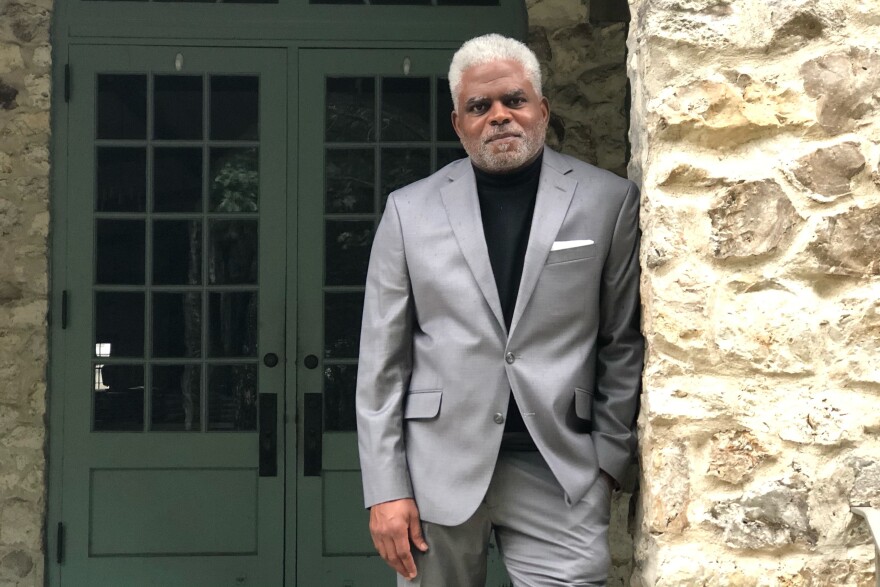E. Stanley Richardson, the Alachua County poet laureate, choked over the words Thursday evening as he read from one of his new poems, “8 Minutes and 46 Seconds”:
“Trying to come to grips / to comprehend my own / a Black man’s tears / weeping for his brother / weeping for his son / I watched from the comfort of my uncomfortable Blackness.”
Speaking during a virtual event offered by the Matheson History Museum in Gainesville, Richardson said, “This poem I wrote when I was sitting in front of the television, and I watched a policeman kneel on the neck of George Floyd.”
Why was it hard to read from a poem about something that happened in Minnesota in May?
“When you witness, and you feel compelled to be a witness, sometimes it can get really heavy,” Richardson told the audience.
As he read more of it and from eight other of his poems, Richardson focused on racial injustice and divisiveness across the country – and the need to continue having hard conversations amid the Black Lives Matter movement and current political climate.
“I almost couldn’t get through a couple of these poems tonight, and that’s the first time that has happened,” he said.
About 60 people attended the event, “Poems in the Key of Movement,” via Zoom and Facebook Live, said Kaitlyn Hof-Mahoney, the Matheson’s curator of collections. Richardson recently joined the museum’s board of directors, said Dixie Neilson, its executive director.
The poet laureate also read from “Exquisite,” inspired by the protest marches that occurred nationwide after the police-related deaths of Floyd and other Black Americans.
“One hundred / thousand / million / impassioned voices / raised fists and steadfast / allies / bear witness to the chanting / an exquisite corpse screams into the unscripted a cappella anthems / boldly marching into the hot breath of the dragon’s lair/ beyond the tipping point of prayer / shouting holes into the fabric of the unjust / prying hope from the status quo’s clenched teeth.”
He added: “When will the protesting cease / no justice / no justice / no justice / no peace.”
Richardson noted that his poetry did not address the case of Breonna Taylor, the African American woman who was shot by police in her apartment in Kentucky in March.
“I couldn’t write anything about Breonna, because she reminded me of one of my daughter’s friends,” he said. “It was just too painful, so I left that alone.”
Hof-Mahoney moderated a Q&A session after Richardson concluded his readings.
When asked what poetry he likes to focus on, the laureate said while he enjoys writing about everything from small town living to the Santa Fe River, social justice remains his priority.
“I mean, there’s just some things that are so pressing, so immediate, that you have to give your attention to it,” he said. “I can’t write about the river if there’s a dead body over there.”
One audience member who identified herself as Allison Dehnel asked, “I am struck by your use of color and other vivid visual language, and was wondering if you also use painting or sculpture or another medium to explore your perceptions, thoughts and emotions, in addition to poetry?”
Richardson replied: “The color blue is the color of the sky. It was the color that Africans and my ancestors used to paint houses, that is supposed to keep evil spirits away. Sometimes I don’t know where stuff comes from. Blue has a spiritual meaning for me, I can’t really articulate why, but blue is just there.”
While calling poetry and spoken word a “catharsis for unloading what’s inside you,” he also urged the audience to advocate for poetry, and to help make it more accessible in everyday life.
“I’m serious: Poetry is really cool,” Richardson said. “Just share your work if you are a writer or a poet. Just sit down and write.”

